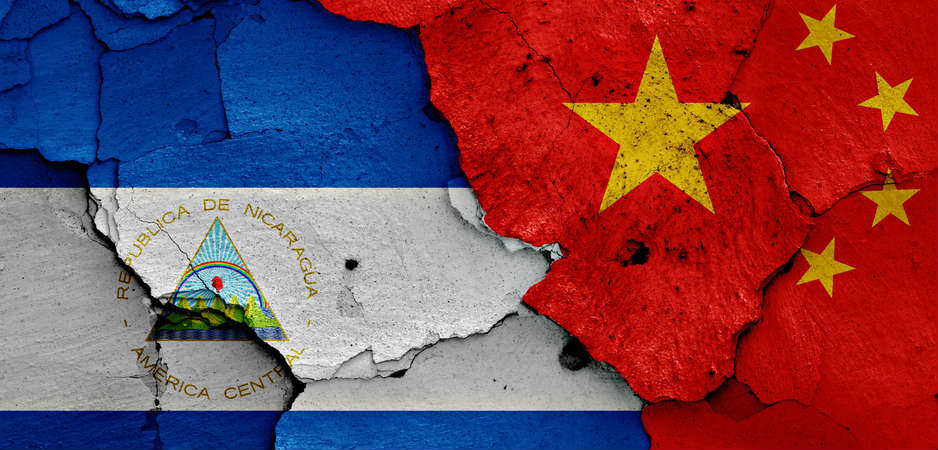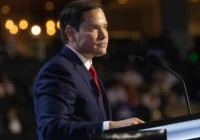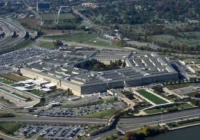Washington’s focus in Asia and the Middle East has given Beijing the opportunity to gain a strategic foothold in Latin America.
With 42% of people below the poverty line, Nicaragua has the weakest social indicators in Latin America. The country’s economic situation is mainly a result of the US embargo following the 1980s Sandinista Revolution. Nicaragua also lacks diversification in its economy and infrastructure, and it has an unskilled workforce.
In July 2013, Nicaraguan President Daniel Ortega made an agreement with Chinese businessman Wang Jing, president of the startup investment firm Hong Kong Nicaragua Canal Development (HKND), to create a transoceanic channel. Competing with the smaller Panama Canal, this Gran Canal initiative includes many sub-projects such as a port on the Pacific and Atlantic coasts, an international airport, free trade areas and an oil pipeline. It would also represent a firm push toward progress, economic growth and social welfare.
Enter China…
Even though the economic and social boost that Nicaraguans could see from with this transoceanic channel, many related issues appear to be underestimated if not concealed, despite warnings from local experts.
The transoceanic channel will extend to 278 kilometers, and its area of influence will affect many protected areas such as natural reserves, wetlands, archipelagos, islands and Lake Cocibolca, in particular. Due to its low depth, the lake will be drained to reach a minimal depth of 30 meters throughout the 105 kilometers of the canal route to allow safe passage for containers up to 500-meters-long. The drenching operation will result in over 1 billion tons of waste—the destination of which remains unknown.
To make this project feasible despite the protected areas, Nicaraguan authorities handed the HKND a land concession of 100 years and approved Law 840, a measure that allows the Nicaraguan constitution to be bypassed, as well as other directives protecting both the national ecological resources and the rights of the inhabitants living in those areas. Among those rights codified in the Nicaraguan constitution is an autonomous arrangement granting the inhabitants cultural, economic and property rights, and requiring that any “concessions and contracts of rational exploitation of the natural resources granted by the State in the Autonomous Regions of the Atlantic Coast must have the approval of the corresponding Regional Autonomous Council.”
According to Telemaco Telavera, the Canal Commission spokesman, the commission did not choose “the route that costs less economically but the one with the lowest environmental and social impact … We have chosen the route with the lowest population density.”
As no serious official reports or risk analysis have been provided by the Nicaraguan state, many experts are warning about the dramatic and irreversible impact this project would have on the ecosystem, as the drenching and maintenance of the channel would endanger the wildlife and fragile biodiversity of the lake. Among those specialists, Franklin Briceňo, an ecologist and member of Fundación del Rio, argues that unless the project is canceled, “Nicaragua would face an ecocide.”
While the Nicaraguan government and the HKND have assured people that anyone displaced by the project will be fairly compensated, human rights groups and locals have cried foul, and many demonstrations have sprung up around the country protesting the anticipated forced removal in exchange for financial compensation. They claim that not only does the failure to consult violate the terms of the Nicaraguan constitution, but that it also violates their internationally recognized rights. The people marching have been brutally reprimanded, and anti-canal militants are often sent to prison on exaggerated charges.
Despite this local concern, the general population remains indifferent or in favor of the channel as not only will the HKND have to pay $100 million for the land concession, but also because this project is upheld by the promise of 25,000 new jobs in a country severely hurt by hunger and poverty.
As no actual proof was provided, some observers consider these allegations to be exaggerated and manipulated. Lopez Baltodano points out that the price the HKND paid is ridiculously cheap, as $100 million represents only two months-worth of remittances for Nicaraguans working abroad. From that point of view, the HKND is actually paying a symbolic price to enjoy a century of rights over the most valuable natural resources of Nicaragua: forests, protected areas and Lake Cocibolca—which, as the main source of water for human consumption in Central America, has a value that is impossible to relate strictly in economic terms.
As for the expected creation of 25,000 jobs for locals, the initial promise was originally four times greater but slowly decreased over time. Even if its number was correct, Briceňo argues that most Nicaraguans do not match the basic skill requirements to be hired on the construction project.
Therefore, despite the ecological, social and democratic threat the canal represents, even the proper utility of the channel remains highly doubtful. Indeed, Panama is expanding its own canal that is already functional, and specialists are identifying a new transoceanic natural route in North America due to melting glaciers.
Despite asserting no connections with the Chinese government, Wang Jing appears to be a proxy for Beijing’s interests as the HKND is backed by China Railway Construction Corporation, a huge government-owned enterprise that displays a mural of various Chinese military weapons.
The Dragon in Latin America
The US focus on other regions such as the Middle East and Asia for most of the last decade has created an opportunity for China to gain a strategic foothold in the Western Hemisphere. Facing local controversy and having been conceived without pertinent economic justifications, the canal construction project has already been postponed to late 2016 (originally scheduled for December 2014) and may even never be completed. In light of those considerations, the Gran Canal may be an alibi for China to obtain the 100-year lease to control and operate in the area. By doing so, China would steadily increase trade and investment in Central America, in order to obtain access to markets and make new political allies along the way.
More than business and trading opportunities, it would give Beijing influence in the region as a key commercial route and maritime asset. This would require military policing activities in the region surrounding Nicaragua, therefore, creating the ability for the Chinese navy to move warships into the Caribbean and the Atlantic. It is also not beyond the realm of possibility that a Chinese-controlled canal—located in an openly hostile nation like Nicaragua—could be used to facilitate staging for unfriendly naval or military forces.
In 1913, the Panama Canal gave the US influence over the Americas, allowing it to enshrine its control over an international route. This led to Washington expanding its influence through infrastructural development projects in other Latin American countries, but also in Africa. China is taking advantage of such areas that world powers did not let to fully develop.
The Beijing-controlled area in Nicaragua, therefore, represents a challenge not only to the weakened Western primacy, but truly the advent of a new dynamic in the distribution of world power.
*[Martina Rose assisted with research for this article.]
The views expressed in this article are the author’s own and do not necessarily reflect Fair Observer’s editorial policy.
Photo Credit: Danielo / Shutterstock.com
 We bring you perspectives from around the world. Help us to inform and educate. Your donation is tax-deductible. Join over 400 people to become a donor or you could choose to be a sponsor.
We bring you perspectives from around the world. Help us to inform and educate. Your donation is tax-deductible. Join over 400 people to become a donor or you could choose to be a sponsor.
Support Fair Observer
We rely on your support for our independence, diversity and quality.
For more than 10 years, Fair Observer has been free, fair and independent. No billionaire owns us, no advertisers control us. We are a reader-supported nonprofit. Unlike many other publications, we keep our content free for readers regardless of where they live or whether they can afford to pay. We have no paywalls and no ads.
In the post-truth era of fake news, echo chambers and filter bubbles, we publish a plurality of perspectives from around the world. Anyone can publish with us, but everyone goes through a rigorous editorial process. So, you get fact-checked, well-reasoned content instead of noise.
We publish 2,500+ voices from 90+ countries. We also conduct education and training programs
on subjects ranging from digital media and journalism to writing and critical thinking. This
doesn’t come cheap. Servers, editors, trainers and web developers cost
money.
Please consider supporting us on a regular basis as a recurring donor or a
sustaining member.
Will you support FO’s journalism?
We rely on your support for our independence, diversity and quality.






